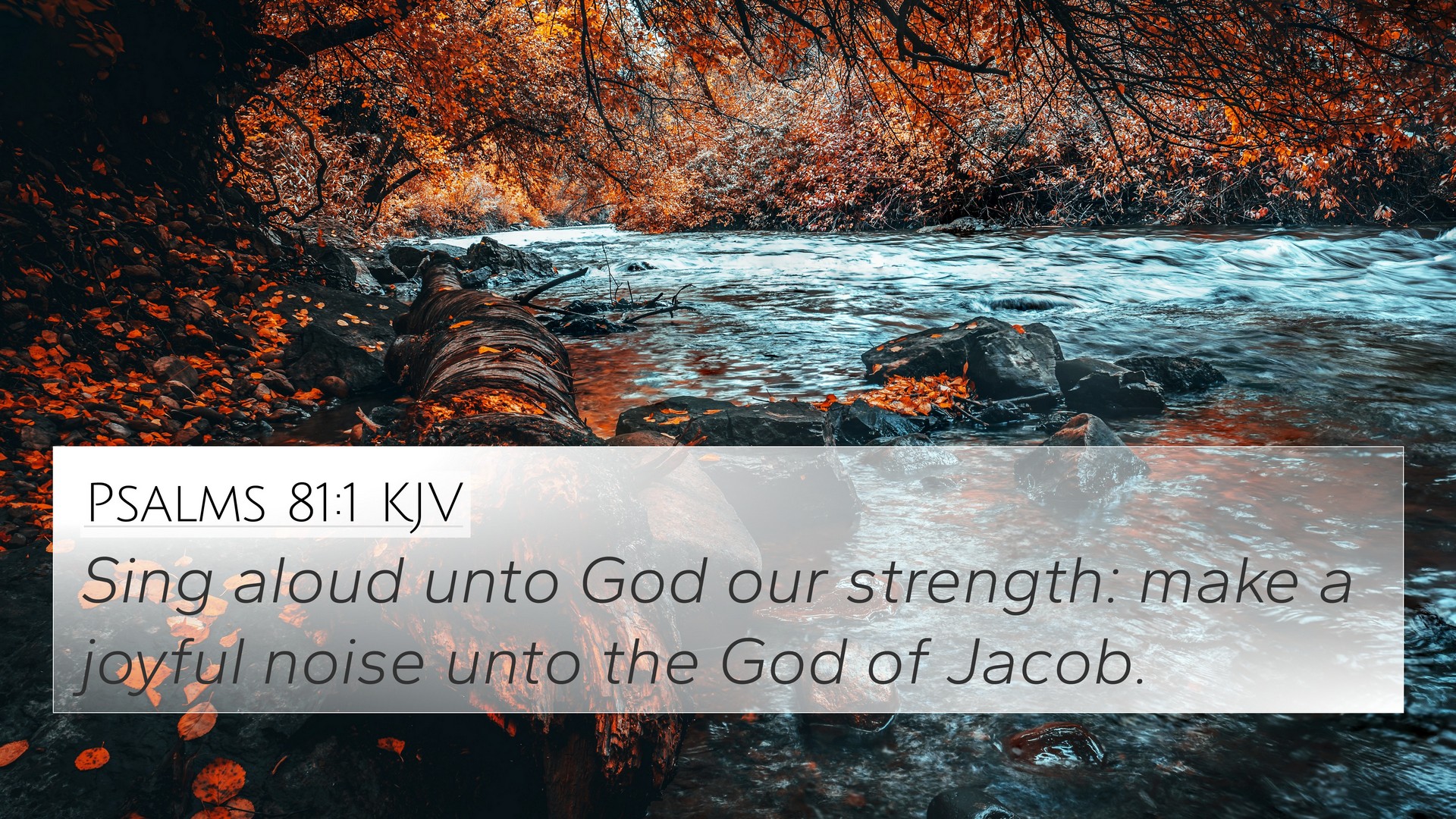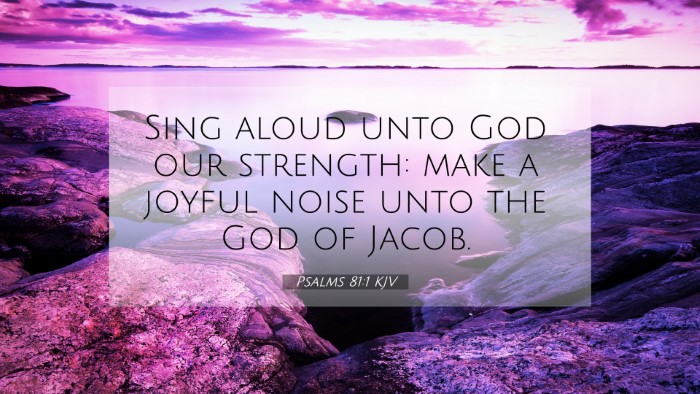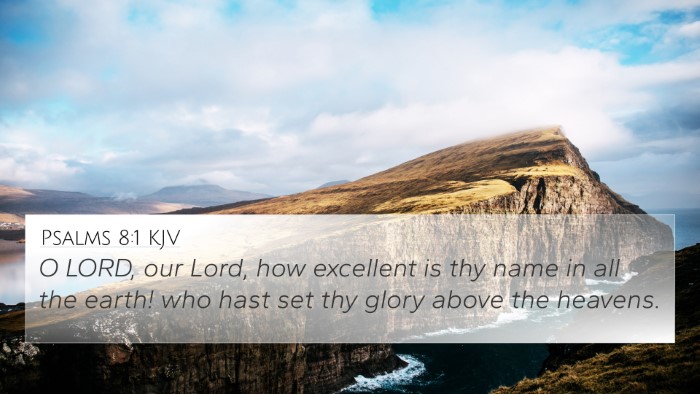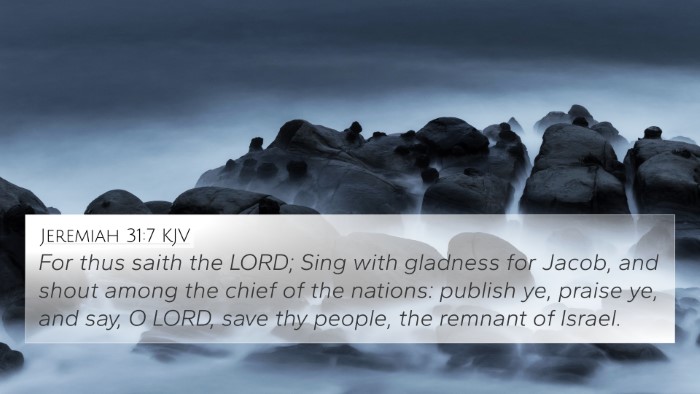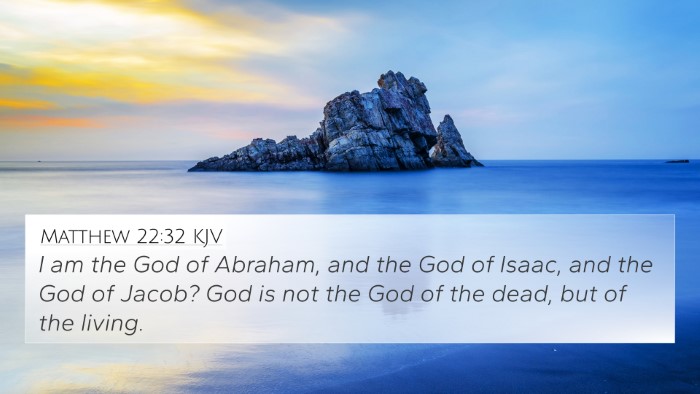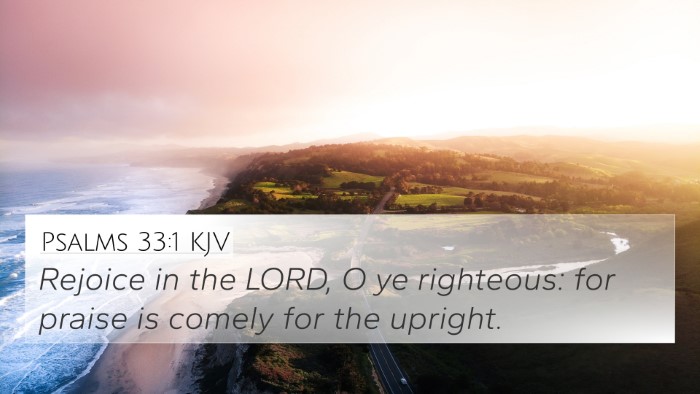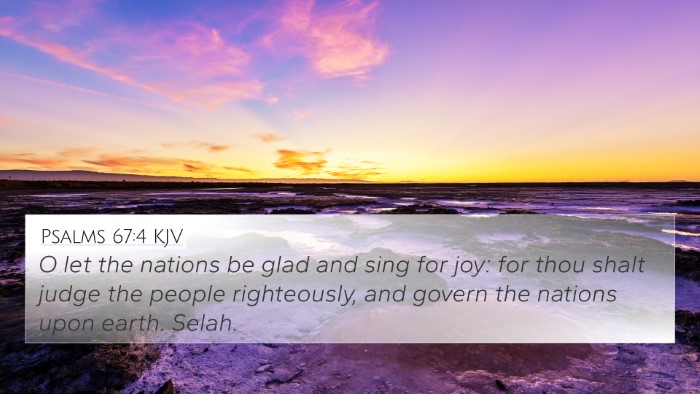Psalms 81:1 - Summary of Meaning and Insights
Verse: "Sing aloud unto God our strength: make a joyful noise unto the God of Jacob."
This verse invites the people of God to engage in worship through music and joy. It emphasizes the importance of recognizing God as our strength and encourages expressions of joy in His presence. The call to "sing aloud" signifies not just any singing, but a joyous proclamation of God's greatness, particularly through the lens of His relationship with Jacob, a figure representative of Israel.
Insights from Commentaries
- Matthew Henry: Henry emphasizes the communal aspect of worship. He suggests that this joy is both individual and collective, urging the people to come together to praise God as a community. He also links this praise to the strength God provides in times of trouble.
- Albert Barnes: Barnes highlights the historical context, referring to God's past actions and the blessings bestowed upon the descendants of Jacob. His commentary discusses how the name "Jacob" symbolizes not just a person but the entire nation of Israel, reflecting on God's covenant with His people.
- Adam Clarke: Clarke elaborates on the significance of singing as an expression of faith. He notes that joyful noise embodies gratitude and acknowledges God's might, portraying a relationship built on love and reverence. Clarke also encourages believers to remember the divine protection and guidance that God provides.
Cross-References and Thematic Connections
The following list highlights important Bible verses related to Psalms 81:1, demonstrating the thematic and spiritual connections throughout Scripture:
- Psalms 95:1-2: An invitation to sing and make a joyful noise unto the Lord.
- Isaiah 12:5: Encouragement to sing praises to the Lord for His great deeds among the people.
- Hebrews 13:15: Call to continually offer the sacrifice of praise to God.
- 1 Chronicles 16:23-25: Instructions on singing and praising the Lord among the nations.
- Ephesians 5:19: Paul encourages believers to speak to one another with psalms, hymns, and spiritual songs.
- Colossians 3:16: The importance of letting the message of Christ dwell among us richly, singing to God with gratitude.
- Psalms 100:1-2: A call to shout for joy to the Lord and worship Him with gladness.
- Revelation 5:9: The ultimate expression of joy in singing a new song before God and the Lamb.
- Psalms 30:11-12: God turning mourning into dancing, signaling transformation and joy.
- Exodus 15:1: Moses and the Israelites singing after their deliverance from Egypt, exemplifying joy in salvation.
Understanding the Importance of Cross-Referencing
Cross-referencing Biblical texts enriches our understanding of Scripture. By analyzing related verses, we can uncover deeper meanings and themes that run through both the Old and New Testaments. The insights gained through comparative Bible verse analysis allow for a more nuanced grasp of God's character and intentions for humanity.
Tools for Bible Cross-Referencing
For those seeking to explore inter-Biblical dialogue, consider utilizing:
- Bible Concordance: An invaluable tool for locating scripture and its connections.
- Bible Cross-Reference Guide: Provides thematic links between verses and ideas.
- Bible Chain References: Offers a chain of related verses that help trace a theme or doctrine.
- Comprehensive Bible Cross-Reference Materials: Books or online resources that compile various references for study.
Conclusion
Psalms 81:1 calls us to a joyful expression in worship, reinforcing the strength we find in our God. The act of singing is not merely a tradition, but a profound response to God’s grace and might. By engaging in cross-referencing, believers are equipped to better understand the richness of the Scriptures and the interwoven nature of God’s message throughout the Bible.
